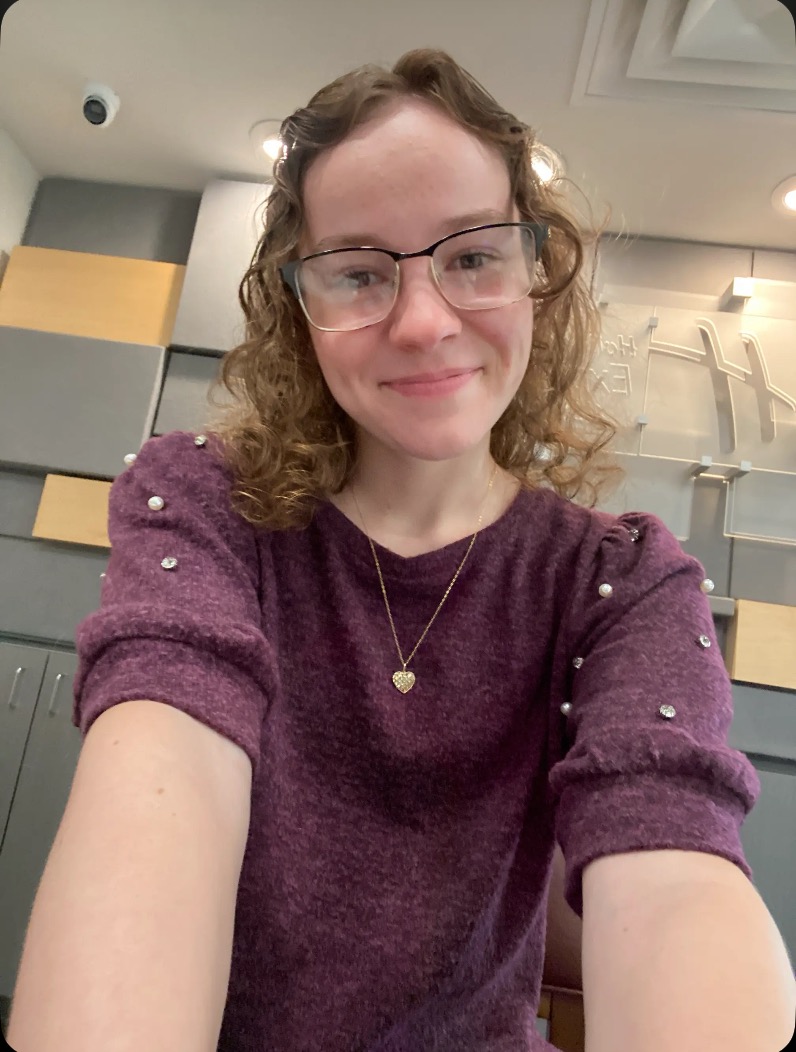
Fighting through
Hannah, age 22
Hello, my name is Hannah!
I was diagnosed with POTS at the age of 19. Before the diagnosis I had all kinds of symptoms—fatigue, constant nausea, getting sick, passing out, and seizures that weren’t epilepsy. I remember looking at my mom and asking, “What is going on?” Every day I woke up it was a hassle just to keep my feet from swelling. My knees would swell to almost twice their size, my feet would turn purple, and on top of that no doctor wanted to listen. I was told I was faking and that I needed to see a psychiatrist, but I knew something was wrong—I just needed the right person to help me figure it out.
Eventually, I saw a cardiologist named Dr. G. She was amazing; she knew exactly what I needed and told me, “You have POTS—the extreme kind.” Nothing helped until I got on the right medication, and even now I have to readjust it once in a while. Exercise didn’t work, extra salt didn’t work, but the medicine does—as long as I take it on schedule. If I miss a dose, I’m in big trouble.
It’s especially hard during my monthly cycle. My body fights harder and I have more episodes. People think POTS just makes you dizzy when you stand up, but it’s so much more. It’s late nights when you can’t sleep because your head is pounding or your legs are tingling. I hope we can find a cure—not just for me, but for the other women struggling for answers, tired of being ignored the way I was.
Now that I know what I have, it’s still a battle to keep a routine that works. When I’m stressed, I do yoga to relieve tension. POTS makes you really tired—I can sleep for hours and still feel exhausted. My diet has changed, too; after I eat, my stomach hurts. I’m not angry that I have POTS. I want other women to stand up for themselves and not be scared. Life is hard with POTS, but we can do it.
It’s easy to give up, but it’s harder—and worth it—to keep going. You have a purpose and you’re here for a reason. Don’t let POTS stop you; don’t let it define you. Do the things you love, even if it’s hard. If people judge you, know that you’re doing your best. Take your time: lie down for a while before an activity, eat extra protein before a walk, keep salty snacks by your bed, and take a multivitamin.
What helps me is granola, yogurt, fresh fruits and veggies—and taking about ten minutes before I get up and start moving. I also wear compression bands for circulation; without them I struggle. The amazing (and frustrating) thing about POTS is that it affects each of us differently.
God knew I would be diagnosed with this, and I’m not mad about it. I’ll keep fighting, praying, and hoping to learn more so we can all stand up to POTS together.